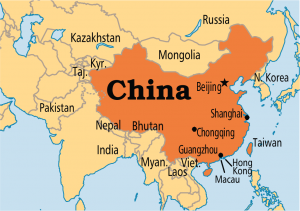Brief Summary:
In Michael Mauro’s blog post, “Quantitative Decision Making Is Important:Except During The World Cup“, Michael critiques the production and results of creating the brand new soccer stadiums in South Africa for the 2010 World Cup. He argues that both FIFA and the host city of Africa should take some blame for creating these multimillion dollar stadiums that were once filled with the worlds best soccer players but now sit unused. Michael’s reasoning is that FIFA demands certain things out of these host cities and in order to maintain that title these poor countries must abide by their rules. Therefore, FIFA is wrong by forcing the production of these projects that will bring them profits and leave the host city in turmoil. On the other hand, the host cities have the final call on if they want to follow through with the stadiums or back out. Thus the host cities are also to blame for putting themselves into these difficult situations.
My opinion:
I agree with Michael in saying that both Fifa and the host cities are to blame, but I do not agree that the responsibility is equal. I believe that FIFA gets away with taking advantage of these host cities who offer to be the site of the World Cup. More often then not, FIFA requests the cities to build brand new stadiums and if they don’t then FIFA will move to the next country in line. These countries like South Africa are so desperate for some publicity and some way to make money. But as it turns out, they may make some for those few weeks of the World Cup, but once it is over they are left with these big empty stadiums which nobody uses. Also as Michael said, FIFA claims to be a “non-profit organization” but if all the money generated from the World Cup isn’t going to the host country then where is it going? Is it just magically disappearing? The way FIFA operates is completely unethical in my mind. No business should treat any stakeholder that way and just as we have seen in the past with companies like Nike or Lululemon, the story will eventually get out. I think it will be interesting to see if FIFA is ever accused of abusing these countries just for their precious competition and then leaving them there to rot once it is over.
Source(s) Used:
Mauro, Michael. “Quantitative Decision Making Is Important: Except During The World Cup.” Michael Mauro’s Blog. N.p., 28 Oct. 2014. Web. 29 Oct. 2014. <https://blogs.ubc.ca/michaelmauro/2014/10/28/blog-post-7-quantitative-making-is-important-except-during-the-world-cup/>.
York, Geoffrey. “How South Africa Can Offer Brazil a World Cup Lesson.” Globe and Mail [Cape Town] 8 June 2014: n. pag. Print.
http://www.theglobeandmail.com/sports/soccer/world-cup/white-elephants/article19064519/






